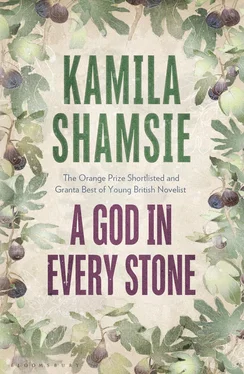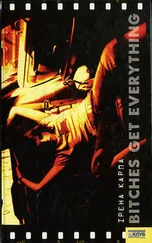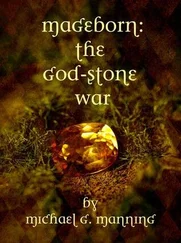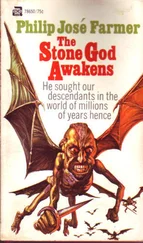Your brother from the orchards has survived hell. His blade of ice will melt at your approach, and yours only.
Qayyum cupped his hands together, the paper a grainy lining between them, reciting a prayer. A missing limb, a missing eye — these were the only reasons an Indian soldier would be discharged and find himself in Peshawar again, but Allah, let it be a miracle; let it be something else. He placed his fingertip against his glass eye, astonished to find it wet with tears.
Kalam strode towards him through the orchard, arms swinging. An eye then, oh Kalam, if only I had been there to wash your wounds, to be a light in the terrifying darkness of day, to string together in whispers the names of all the gates of the Walled City as though they were prayer-beads. But just before the other man embraced him he saw that both his eyes were eyes, no artifice of glass. It could mean only one thing: it wasn’t his body, but his mind which had been destroyed.
— The English have decided to stop recruiting Pashtuns.
Kalam bit into a plum, arching his neck forward so that the spray of juice wouldn’t stain his clothes.
— For the Army? Qayyum asked.
The other man nodded, wiping his mouth against his sleeve so that all the juice he had carefully kept off his clothes was now a dark smear near his wrist. It was the closest thing to madness he’d displayed in these several minutes during which he’d asked so considerately about Qayyum’s time in Brighton, the sea voyage, the return to Peshawar.
— Too many of us mutiny, too many desert. Particularly when we’re asked to fight our Muslim brothers. Don’t look indignant, Lance-Naik — you should be proud to belong to a people who won’t kill their brothers at the command of their oppressors.
Kalam grinned as he said it, a piece of pulp between his front teeth.
— Perhaps I belong to a people who desert because they know they can hide with the tribes where the English will never find them and have them court-martialled.
— So you’ve guessed it. Yes, I go tomorrow to my mother’s people and do what must be done.
— What is it that must be done?
— Jihad.
This morning had brought fresh rumours of the bloody battles between the English and the tribesmen under Haji Sahib in the mountain passes and foothills; on his way to the orchard Qayyum had walked past a battalion heading towards the hills, and the sound of feet marching in unison tore at his heart as if they were the footsteps of a beloved walking deliberately away. He said this to Kalam to take that look of fierceness from his face, but his friend raised his hands sharply to ward off the words.
— You’ll fight for the Europeans who want to keep their land away from invaders but when your brothers want the same thing you turn the invaders into your beloved.
— Kalam, remember that sepoy who stood up in the moonlight and started running towards the Germans, screaming a sound with no words in it?
— Of course I remember.
— Why do you remind me of him?
Kalam placed a hand on Qayyum’s face, thumb stroking the scars beside his eye.
— Come with me.
The debt Qayyum owed Kalam was immense — he couldn’t say no, and the other man knew it. But when he hesitated Kalam merely shook his head, and dropped his hand.
— Still a loyal soldier, Lance-Naik?
— No, Kalam. Not still any kind of soldier.
— But your loyalty is with the English.
— My loyalty is with my friend Kalam. And I know if a deserter is captured while attacking English troops he’ll be executed.
— They won’t capture me.
So quickly Qayyum barely had time to know what was happening, Kalam spun him round and caught him in a neck-hold, the tip of a knife pressed against Qayyum’s breast.
— See, Lance-Naik? I know all their tricks, but they don’t know all mine. And if their bullets find me, let them find me. I’m not afraid.
— I am. What is the world if Kalam isn’t in it?
Kalam loosened his grip, pulled Qayyum closer to him. They stood that way for a while looking towards the plum trees, the mountains, the clear blue skies. There was peace here in the orchards, peace that could never be found in Peshawar with its constantly parading troops and bandoliered tribesmen. When Kalam’s hand started to wander, Qayyum batted it away — it was almost ritualistic, the advance and the rejection, a shadow of the past in which there was heat in both actions. It was almost comforting. With everyone else in his life there was an abrupt severing — the Qayyum of before distinct from the Qayyum of now; but with Kalam, his life was restored to continuity.
— I tried to come to you at Kitchener.
— I know; I heard you. But I thought you were a dream made of morphine. It was only later they told me it was you, and that you believed I’d been sent away.
— Stay here. Pretend you aren’t the deserter, Kalam Khan. Tend the orchards with your father. Find a beautiful wife and have lots of sons.
— It’s a lovely dream.
— If we can live nightmares we can live dreams.
A pause as Kalam thought about it, and then a booming laugh.
— Lance-Naik, sir, that’s the stupidest thing I’ve ever heard.
— I know, I know!
The pleasure of a comrade. On the days when he felt adrift in his life how would he stop himself from travelling up into the hills for a day in Kalam Khan’s company? But he knew the laws which prohibited anyone in British India from communicating with members of hostile tribes. Once Kalam joined his cousins, the Mohmands, even writing to him would be a crime.
— Then will you do something else for me, brother? Kalam said.
— Anything.
— When it’s planting season will you come to help my father if he sends for you? He used to hire someone, with the money I sent him from the Army, but now. .
— Of course I will. For as long as he needs me.
Poor Kalam — twenty-one years old, a fugitive with nothing to offer the men with whom he was seeking refuge except his skill at war, no way to fulfil the obligations of a son, and no way back, no possible way back.
Qayyum rolled a leaf between his palms, releasing its scent, and saw his own life as blessed.
It was always night in the Street of Courtesans, the alley too narrow to admit sunlight. Qayyum wrapped the end of his turban around his face as he walked towards it, hunching his shoulders to make his gait unrecognisable. At this time of the afternoon only the ice-sellers did good business, so most of the doors lining the alley were open to display the women lying against pillows, propped on one elbow.
Two men waited outside a closed door, talking about the massacre of English troops by Haji Sahib’s forces at Rustam. They swept down the Ambela Pass and attacked the camp, the shorter of the two said — so many dead and wounded soldiers that sixteen trucks were required to shift them to the nearest hospital. Allah keep Haji Sahib safe, said the other, and the short man threw his hands up in despair.
— How can I stay here now that you’ve mentioned Allah’s name. You bastard, you just want to get rid of me so you’re next in line. Hey, you. Scarred-man.
Qayyum had slowed to listen to their conversation — Haji Sahib’s forces included Kalam — and now found the short man speaking to him, saying, Take my place. The taller man withdrew a dagger from his belt. Qayyum shook his head — a refusal to one man, a warning to the other — but his curiosity couldn’t stop him from asking the next question.
— So many open doors, why are you waiting outside this one?
From across the street one of the courtesans called out:
— Some Pathans lick the shoes of the English, some want to lick other things.
Along the alley the sound of laughter from the courtesans. Any further questions Qayyum had were cut short by the door opening. A man scented in rosewater stepped out, and the woman in the room came up to the doorway, one hand on her hip, and flicked the other hand in dismissal at the courtesan across the street. Qayyum stepped back, and further back, his spine pressing against the wall. It was an Englishwoman in a long white dress, her arms encased in gloves, a bonnet on her head. Eyes grey, skin lightly freckled, age no more than twelve or thirteen.
Читать дальше












